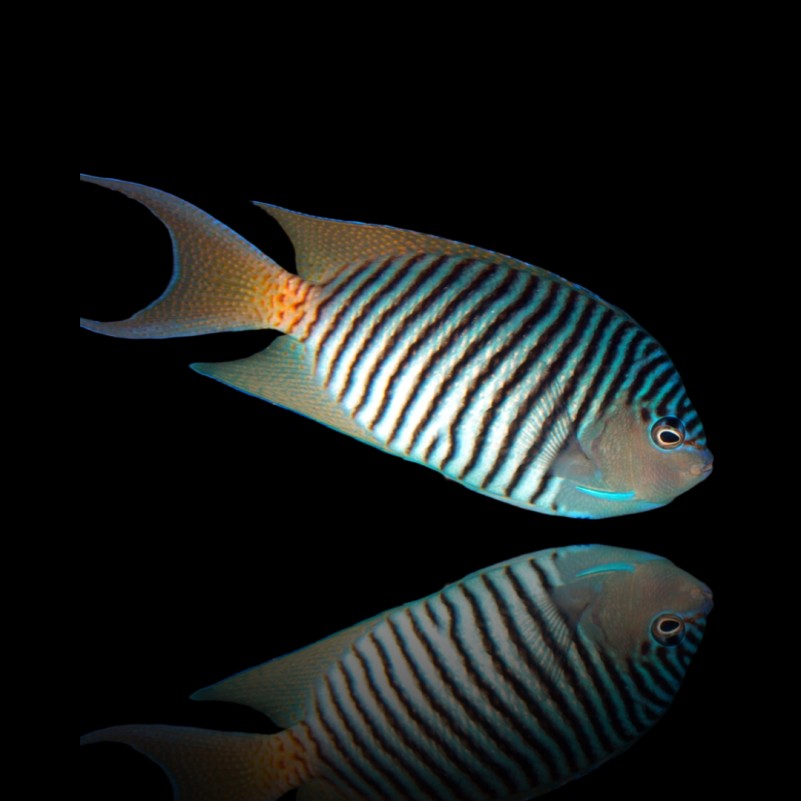Genicanthus Melanospilos Male: A Majestic Addition to Your Reef Tank
Overview
The Genicanthus Melanospilos male, commonly known as the Black-spot Angelfish or Zebra Spotbreast Angelfish, is a stunning and highly sought-after species for marine aquariums. With its striking black spots and elegant form, this fish is a true centerpiece for any reef tank.
Distinctive Features
- Black spots: As the name suggests, the male Genicanthus Melanospilos is adorned with numerous black spots, especially on its head and body.
- Elegant shape: These angelfish have a graceful, elongated body with a pointed snout and a flowing dorsal fin.
- Coloration: The base color is typically a rich, deep blue, with the black spots providing striking contrast.
Behavior
- Peaceful: Generally peaceful, they can coexist with a variety of other fish species.
- Active: They are active swimmers and enjoy exploring their surroundings.
- Reclusive: May be somewhat reclusive at first, especially in new environments.
Habitat and Care
- Reef-safe: The Genicanthus Melanospilos is considered reef-safe and can coexist with a variety of corals and invertebrates.
- Water quality: Requires excellent water quality with stable parameters.
- Diet: Primarily herbivorous, feeding on algae and small invertebrates.
- Tank size: A spacious aquarium is recommended, as these fish can grow quite large.
- Lighting: Moderate to strong lighting is beneficial.
Compatibility
- Other fish: Generally compatible with peaceful fish species, but may be aggressive towards other angelfish, especially during breeding season.
- Invertebrates: Typically reef-safe, but may nip at slow-moving corals.
Breeding
- Sex reversal: While females are smaller and less colorful, they can change sex to become males under certain conditions.
- Breeding pairs: Establishing a stable pair can be challenging but rewarding.
Tips for Care
- Acclimation: Proper acclimation is crucial for the survival of this species.
- Quarantine: New fish should always be quarantined before introduction to the main tank.
- Diet: Offer a varied diet of algae, nori, and high-quality marine fish flakes.
Conclusion
The Genicanthus Melanospilos male is a magnificent addition to any marine aquarium. Its striking appearance and peaceful nature make it a popular choice among aquarists. However, it's important to provide the proper care and conditions for this species to thrive.



